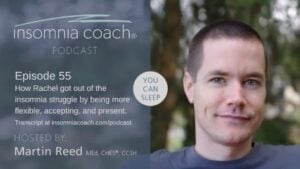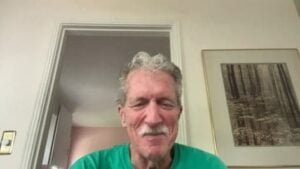How Nina overcame insomnia by embracing wakefulness and dropping the struggle (#57)
When Nina fell pregnant she could no longer use the medication she relied upon to get her through occasional periods of insomnia. Her sleep got worse and insomnia seemed to take over her life. Nothing seemed to work and Nina felt stuck.
After discovering the Insomnia Coach podcast, Nina realized she wasn’t alone. She felt hope. When she enrolled as a client, she started to make change happen. She changed her approach to sleep. She stopped trying to make sleep happen. She changed her response to insomnia. She did things that mattered every day, independently of sleep.
The journey wasn’t easy — but today, Nina enjoys her bed again. She is being the mom she wants to be. She is doing the work she loves. She has her life back from insomnia.










